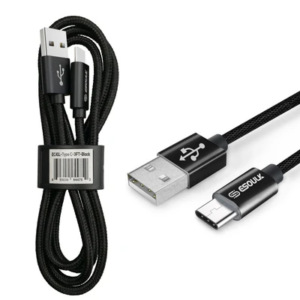In today’s competitive business landscape, establishing strong financial foundations is essential for success and growth. Among the various strategies to build a robust financial profile, leveraging Net 30 accounts and business credit cards stand out due to their accessibility and impact on a company’s creditworthiness.
These tools not only facilitate better cash flow management but also play a pivotal role in building a positive credit history, thereby opening the doors to more favorable financing options in the future.
The Essence of Net 30 Accounts to Build Business Credit
Net 30 accounts, a type of trade credit, offer businesses the convenience of buying now and paying later – precisely 30 days after the invoice date.
This arrangement offers several benefits:
– Cash flow optimization: By delaying payment, businesses can utilize funds elsewhere, enhancing liquidity and investment opportunities.
– Credit-building potential: Regular, on-time payments are reported to credit bureaus, positively affecting the business’s credit score.
– Strengthened supplier relationships: Consistent payments can lead to better terms and even discounts with suppliers.
Business Credit Cards: More Than Just Plastic
Business credit cards extend beyond the realm of simple transactions; they are strategic financial tools tailored for business expenses, offering:
– Clear expense tracking: Segregating business and personal finances simplifies tax reporting and gives a more accurate financial outlook.
– Rewards and benefits: Many cards offer rewards that align with business spending patterns, such as cashback on office supplies or travel points.
– Credit improvement: Responsible use of a business credit card can significantly impact the company’s credit profile favorably.
– Emergency funding: Serves as a contingency resource for unexpected expenses or when awaiting payment from clients.
Combining the power of Net 30 accounts with the flexibility of business credit cards provides a dual advantage in managing finances and building a stronger credit standing. This strategic approach not only assists in navigating the immediate financial landscape but also sets the foundation for long-term success and opportunities.
The Basics of Net 30 Accounts
Net 30 accounts represent a pivotal tool for businesses seeking to manage their cash flow effectively, build a strong credit score, and foster positive relationships with vendors. Understanding how to utilize these accounts can significantly influence your business’s financial landscape.
Cash Flow Optimization
Net 30 accounts offer businesses the advantage of purchasing goods or services now and paying for them 30 days later. This grace period is invaluable for managing short-term cash flow needs, allowing businesses to utilize the received goods or services to generate revenue before the payment is due.
This strategy optimizes working capital, making funds available for other critical expenses or opportunities for reinvestment. Essentially, Net 30 accounts act as an interest-free loan, enhancing your business’s financial flexibility.
Credit-Building Potential
One of the greatest long-term benefits of using Net 30 accounts is their potential to improve your business’s credit score. When vendors report your payment history to major business credit bureaus like Dun & Bradstreet, Experian, and Equifax, consistent, on-time payments contribute positively to your credit profile.
A strong business credit score opens doors to better financing options, lower interest rates, and increased credit limits, which are crucial for business expansion and operational efficiency. The disciplined use of Net 30 accounts demonstrates to lenders your business’s financial responsibility, significantly enhancing creditworthiness.
Relationship Strengthening
Beyond financial metrics, Net 30 accounts play a crucial role in building and strengthening relationships with suppliers. By consistently meeting payment terms, you demonstrate reliability and trustworthiness, which can lead to advantageous outcomes such as discounted prices, volume incentives, or even more favorable payment terms in the future.
These enhanced relationships not only contribute to an improved financial standing but also secure a more stable supply chain – a vital component of business success.
The Role of Business Credit Cards
Business credit cards are not just another payment method; they are a dynamic financial tool designed to manage company expenses efficiently, offer valuable rewards, and foster credit growth.
Expense Tracking and Segregation
One of the fundamental benefits of business credit cards is their contribution to financial organization. They allow businesses to separate personal and business expenses, simplifying tax preparation and financial reporting.
This clear demarcation aids in the accurate tracking of business expenditures, providing insights into spending patterns and helping to streamline budgets.
Business credit cards serve as a financial ledger, facilitating expense analysis and supporting strategic financial decision-making.
Accessing Targeted Rewards
Many business credit cards offer rewards programs tailored to common business expenses, such as office supplies, travel, and telecommunications services.
These rewards can significantly lower operation costs, offering cash back, points towards free travel, or discounts on essential business services.
Selecting a credit card that aligns with your business’s spending habits maximizes the return on every dollar spent, contributing positively to your bottom line.
These targeted rewards not only reduce costs but can also enhance business operations by enabling access to services or products that might have otherwise been considered non-essential due to budget constraints.
Credit Building and Utilization
Responsible use of business credit cards impacts credit scores similarly to Net 30 accounts. By maintaining low utilization rates (ideally below 30% of the credit limit) and making timely payments, businesses can significantly improve their creditworthiness.
This enhanced credit profile is invaluable for securing additional credit resources, negotiating better terms with vendors, and achieving financial flexibility.
Furthermore, business credit cards often come with higher credit limits than personal cards, offering a substantial credit buffer while encouraging disciplined use to avoid high credit utilization ratios.
In conclusion, both Net 30 accounts and business credit cards are instrumental in building a solid financial foundation for businesses. They not only facilitate immediate operational needs, such as optimizing cash flow and separating expenses but also contribute to long-term financial health through credit building and vendor relationship management.
Utilizing these resources strategically can set a business on the path to robust financial stability and growth, unlocking opportunities that extend far beyond immediate financial needs.
Combining Net 30 Accounts and Business Credit Cards for Maximum Benefit
 Image courtesy: Unsplash
Image courtesy: Unsplash
Understanding Complementary Financing Sources
Net 30 accounts and business credit cards operate as vital, yet distinct, financial tools offering unique benefits for managing cash flow and building credit.
Net 30 accounts to build business credit, provided by vendors, allow businesses to purchase goods or services and delay payment for 30 days, enhancing short-term cash flow management.
Business credit cards, on the other hand, offer a revolving line of credit for diverse expenses, along with rewards and the ability to build a credit profile with timely payments.
Understanding and utilizing these complementary financing sources can provide a business with a well-rounded approach to financial management and credit building, leveraging the specific advantages of each.
Achieving a Two-Pronged Approach to Credit Building
Employing both net 30 accounts and business credit cards introduces a two-pronged strategy to credit building, showcasing a business’s financial reliability across different types of credit relationships.
Net 30 accounts to build business credit enhance a company’s creditworthiness by demonstrating the ability to meet short-term obligations to suppliers, which often gets reported to business credit bureaus. Similarly, responsible use of business credit cards, including regular, on-time payments and maintaining low credit utilization, positively impacts a business’s credit score.
This dual approach not only strengthens a business’s credit profile but also diversifies its credit experience, showcasing its ability to manage both trade credit and revolving credit adeptly.
Maximizing Cash Flow with Strategic Use
The strategic use of net 30 accounts and business credit cards can significantly maximize a business’s cash flow. By leveraging net 30 accounts for supplier purchases, businesses can defer payment, thus maintaining liquidity and potentially using the interim to generate revenue from the purchased goods or services before the bill comes due.
Concurrently, business credit cards can cover other operational costs or unexpected expenses, providing a financial cushion that aids in smoothing out cash flow fluctuations. This strategic management of financings allows businesses to allocate resources more efficiently and ensure a steady stream of cash flow for operations and growth initiatives.
Spotlight: The CEO Creative’s Approach to Net 30 and Business Credit Cards
Simplifying the Net 30 Experience
The CEO Creative distinguishes itself by streamlining the net 30 experience, making it more accessible and beneficial for businesses seeking to strengthen their financial standing while securing necessary goods and services.
Through an efficient application and approval process, The CEO Creative minimizes obstacles, allowing businesses to quickly take advantage of net 30 terms. This approach not only facilitates immediate operational needs but also contributes to building a positive credit history as timely payments are made, crucial for businesses aiming to expand their credit access in the future.
Encouraging Business Credit Card Use for Greater Financial Flexibility
Understanding the importance of financial agility, The CEO Creative encourages the utilization of business credit cards as a complement to net 30 accounts. By promoting access to business credit cards, they provide businesses with an additional resource for managing expenditures, taking advantage of rewards, and further enhancing their credit profiles.
This encouragement towards using business credit cards for a wide range of expense needs respects the reality of modern business operations, where flexibility and the ability to respond to unexpected opportunities or challenges are key to sustaining and growing a business.
Focusing on Your Business Success
The CEO Creative’s dedication goes beyond merely offering flexible payment solutions; they are invested in the success of the businesses they partner with. By providing financial products like net 30 accounts and business credit cards, alongside strategic guidance on their effective use, The CEO Creative aims to support businesses in achieving their financial goals.
This supportive stance underlines their commitment to not just being a vendor, but a partner in the growth and success of each business they serve, highlighting the potential of such financial tools when used with informed, strategic intent.
Navigating Your Path to Strong Business Credit
Understanding and managing business credit is essential for any entrepreneur looking to secure their company’s financial future. Building a robust credit profile not only facilitates access to better financing options but also affects your business relationships and growth opportunities. Let’s delve into the components that make up a strong business credit foundation.
Diving Deep into Your Business Credit Score
Your business credit score is a numerical representation of your company’s creditworthiness, similar to a personal credit score but for your business. This score is determined by several factors, including payment history, credit utilization rate, length of credit history, company size, and industry risk.
Regular monitoring of your business credit reports from bureaus like Dun & Bradstreet, Experian, and Equifax is crucial. It allows you to understand what factors are positively or negatively impacting your score and gives you an opportunity to correct any inaccuracies that could be affecting your credit.
Mastering Credit Utilization for Better Scores
Credit utilization – the ratio of your current credit debt to the credit limit – is a significant factor in determining your business credit score. For optimal impact on your score, aim to keep your business credit card utilization below 30%. Even if you pay off the balance each month, a high utilization at any time can negatively affect your score. Managing this aspect diligently can lead to improved credit health and access to better financial products.
Integrating Credit Arrangements into Financial Planning
Both net 30 accounts and credit card balances should be considered within your broader financial planning strategy. They affect your cash flow and require careful management to ensure on-time payments. Incorporating these payments into your financial forecasts helps avoid cash crunches and maintain healthy vendor and lender relationships.
Beyond the Basics: Strategic Considerations for Robust Business Credit
 Image courtesy: Unsplash
Image courtesy: Unsplash
Building business credit isn’t just about the basics of paying on time and monitoring your score. It also involves strategic considerations that can significantly impact your financial health and growth potential.
Linking Credit and Cash Flow for Financial Health
The interplay between credit and cash flow is critical. While net 30 accounts and business credit cards can offer breathing room in your finances, it’s essential to have a realistic projection of cash flow to cover these obligations without leaning too much on further credit. This balance helps avoid a debt cycle and maintains financial stability.
Diversifying Your Vendor Relationships
A robust credit profile often involves engaging with multiple vendors that offer net 30 terms and report to the credit bureaus. This diversification not only broadens your trade references but also showcases your capacity to handle multiple credit relationships responsibly. It demonstrates to potential creditors your company’s reliability and financial prudence.
Choosing the Right Business Credit Cards for Your Needs
Not all business credit cards are created equal. It’s essential to select cards that offer rewards and benefits that align with your company’s spending patterns and financial goals. Whether it’s cash back, travel rewards, or discounts on business services, maximizing the benefits from your business credit card can contribute positively to your bottom line.
Keeping an Eye on the Long-Term Credit Vision
Finally, it’s vital to maintain a long-term perspective on your business credit journey. A strong credit score opens up a world of opportunities, from securing lines of credit for expansion to obtaining favorable terms on loans and even qualifying for business contracts. Future planning should include strategies for leveraging good credit for growth, negotiating better terms with suppliers, and achieving financial goals that require solid creditworthiness.
In conclusion, building a strong business credit profile necessitates a comprehensive approach, incorporating strategies ranging from careful management of credit utilization to strategic financial planning and vendor diversification. Keeping an eye on both immediate and long-term credit goals will ensure your business is positioned for success, ready to capitalize on opportunities that come with good financial health.
Conclusion
Building a solid foundation for business credit is a journey that requires diligence, strategic planning, and a thorough understanding of your financial needs and capabilities. By thoughtfully employing net 30 accounts and business credit cards, you’re not just managing day-to-day expenses or purchasing inventory; you’re setting the stage for future growth, stability, and financial resilience.
Here are some key takeaways to remember as you navigate the path of building your business credit:
– Cash Flow Management: Utilize net 30 accounts to extend your payment deadlines and keep cash in your business longer, allowing you to manage operational costs more effectively. Meanwhile, business credit cards can cover immediate expenses, ensuring you never miss out on a business opportunity due to cash flow constraints.
– Credit Building: Both net 30 accounts and business credit cards offer the dual benefit of helping you build a strong business credit profile. This opens up opportunities for better financing rates, larger loans, and more favorable terms in the future.
– Financial Health: Regular monitoring and management of your business credit are essential to maintaining a healthy financial status. This includes keeping an eye on credit utilization, disputing inaccuracies on credit reports, and ensuring your payments are always on time.
Remember, building business credit is not an overnight process, but rather a strategic endeavor that, when done correctly, can significantly enhance your company’s financial health and open up new vistas for growth and success. Whether you’re just starting out or looking to level up your business finance strategy, leveraging net 30 accounts and business credit cards wisely can lead to remarkable impacts on your business’s financial future.








